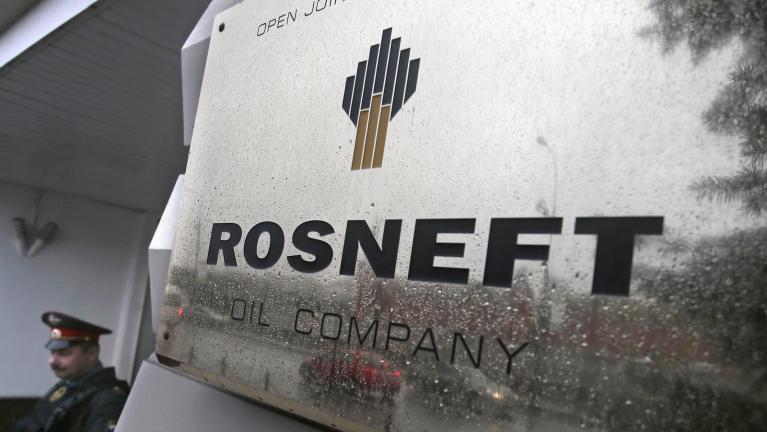Russian oil company, Rosneft said Tuesday that it has completed acquisition of ExxonMobil’s stakes in some joint projects set up to develop offshore Arctic, deepwater Black Sea, and West Siberian tight oil reserves, following the US major’s decision to withdraw in response to Western sanctions against Russia.
“During the second quarter of 2018, within the process of ExxonMobil’s withdrawal from several joint projects, the company completed acquisition of interests in joint ventures with ExxonMobil,” Rosneft said in its financial results released Tuesday.
Some details of the acquisition have yet to be finalized, including allocation of the purchase price and liabilities assumed.
“Allocation of the purchase price to the fair value of the assets acquired and liabilities assumed will be finalized within 12 months of the dates of the respective acquisitions,” Rosneft said.
In March Exxon announced plans to leave its Russian exploration and production joint ventures set up in 2013 and 2014 as a result of sanctions introduced by the US since 2014.
These agreements covered exploration and production activities in the Arctic Kara, Laptev and Chukchi Seas, as well as the Black Sea. The Kara Sea licenses include an area where Rosneft announced it had discovered the Pobeda field in 2014, estimating reserves at 940 million barrels of crude and 391.9 Bcm of gas. Since then there has been little reported activity at the site, with volatile oil prices combining with sanctions to undermine the commercial viability of the project.
In the same period ExxonMobil signed an agreement to evaluate development of tight oil reserves in West Siberia.
Rosneft has said that it will continue to work independently on these projects and is leaving the door open for Exxon to return should that become legally possible.
Analysts have raised concerns, however, over how Rosneft will now develop these projects. Exxon’s financial and technical support was seen as a major advantage for the technically and climactically challenging projects.
Rosneft has yet to comment on whether it will now seek other partners for the projects. Attracting new partners to greenfield projects has been a key part of its strategy to mitigate the impact of Western sanctions, which have significantly restricted the company’s access to Western financing and technology. Deals agreed in recent years have seen Chinese and Indian investors, as well as BP, take stakes in some of its key upstream projects.
Estimates of Exxon’s losses as a result of withdrawal from the projects vary. The company said earlier this year that it expects it to result in a post-tax loss of $200 million.
In addition to this, analysts at Wood Mackenzie said earlier that ExxonMobil spent around $700 million on the Universitetskaya exploration well in the Kara Sea in 2014.
In 2015, former-ExxonMobil CEO Rex Tillerson estimated the potential losses from the sanctions at up to $1 billion, due to their impact on the company’s role in the joint ventures.
Rosneft has said that cooperation with Exxon that is not covered by the 2014 sanctions will continue as normal. This includes Exxon’s operatorship of the Sakhalin 1 project in the Russian Far East, which is covered by a production sharing agreement signed in 1996, and has so far been unaffected by Western sanctions.
The political climate between the US and Moscow continues to worsened, however. Many US legislators have expressed concerns over Russia’s alleged meddling in US elections and President Donald Trump’s commitment to taking a hard line on Russia, which may result in the approval of new sanctions in the future.
Source: S&P Global Platts




